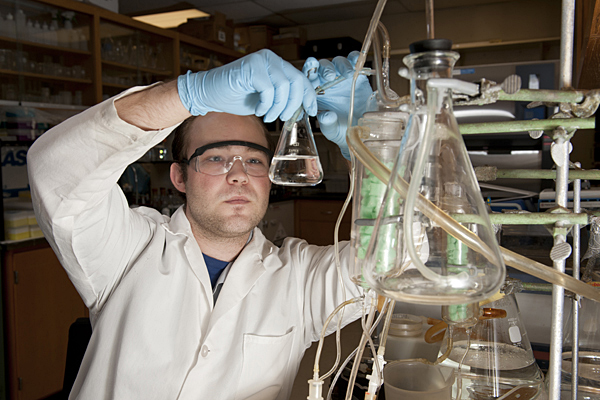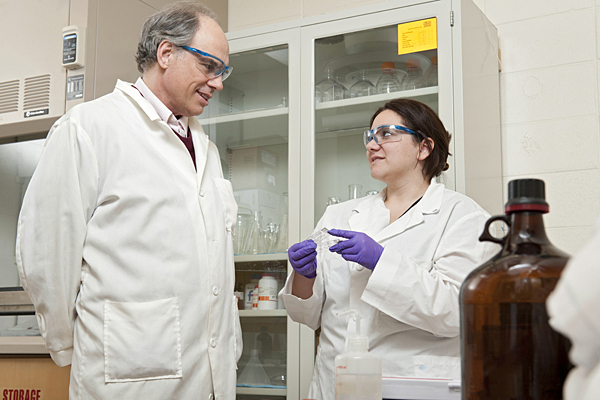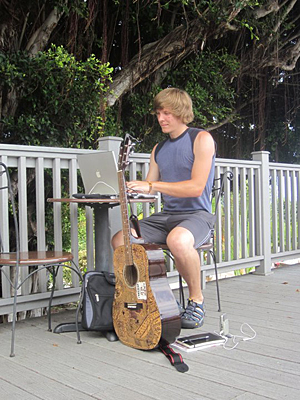


Research intensive
Senior Thesis Awards enable students to focus on research over Winter Session
1:38 p.m., Jan. 30, 2012--John Paul Harris, a University of Delaware senior, has spent UD’s Winter Session in the lab, testing the capability of the common, edible, oyster mushroom to remove harmful bacteria such as E. coli from water. He hopes his research will lead to a cheaper, greener way for cattle farmers in his hometown of Exmore, Va., to treat waste water and storm water to meet EPA standards.
Harris, a plant and soil sciences major and Honors Program student, is one of 23 recipients of Winter Session Senior Thesis Awards from the University’s Undergraduate Research Program. The $700 grants have enabled these students to pursue research full-time during Winter Session, Jan. 3-Feb. 4.
Research Stories
Chronic wounds
Prof. Heck's legacy
“University of Delaware students pursuing a senior thesis have the opportunity to immerse themselves in their scholarship,” says Lynnette Overby, director of UD’s Office of Undergraduate Research and Experiential Learning.
“Under the direction of committed faculty mentors, experiments are completed, chapters are written, and interviews are analyzed. These four weeks provide the time for students to work full time on a capstone activity that will lead to solutions of important disciplinary problems and launch their future as scholars and problem solvers,” Overby says.
After Harris completes his bachelor of science degree, he has his sights set on a doctorate and further exploration of the “treasure trove” of biological processes he says the microbial world can provide humankind.
“My goal in pursuing my Ph.D in microbiology is to elucidate the value of microbes through extensive research into their practical applications and subsequent employment in technology,” notes Harris, who is working under the guidance of Prof. Anastasia Chirnside. “The research I have done so far at the University of Delaware has let me begin doing just that.”
In another lab on campus, psychology major Lisa Dokovna, from Princeton Junction, N.J., is doing research on fetal alcohol spectrum disorder. She got involved in undergraduate research her sophomore year, working in Prof. Mark Stanton’s Developmental Behavioral Neuroscience lab.
Moderate to severe cognitive impairments can occur in children whose mothers consumed alcohol while pregnant. Dokovna wants to understand how such cognitive impairments occur and develop interventions to amelioriate them.
“My experience has motivated me to apply to graduate school to continue research and pursue a Ph.D. in neuroscience,” Dokovna says.
Shane Palkovitz, an English major and Honors Program student from Lincoln University, Pa., is in South Africa interviewing individuals who have been displaced from Zimbabwe. His adviser is McKay Jenkins, Cornelius A. Tilghman Professor of English.
One interviewee, who was forced off her family farm in Zimbabwe in 2002, told Palkovitz: “When they took our farm, we left the country. My grandmother would not come. Because of border restrictions, when she was sick, she could not get the medicine she needed, and she died alone on that side.”
Palkovitz says that although a number of factual publications exist on human displacement, his goal is “to add the human element to the statistics.”
“The hope of this research is to give a voice to those who wish to share their stories of displacement,” Palkovitz says. “It has been both an adventure and an honor getting to meet and interview so many amazing people.”
Article by Tracey Bryant
Photos by Evan Krape










